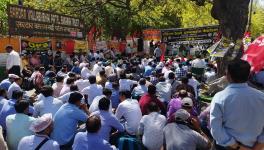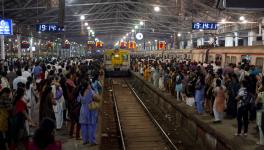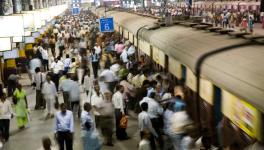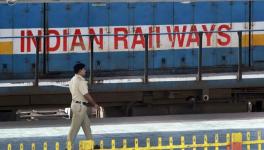CAG Punches Hole in Railways Flexi-Fare Scheme
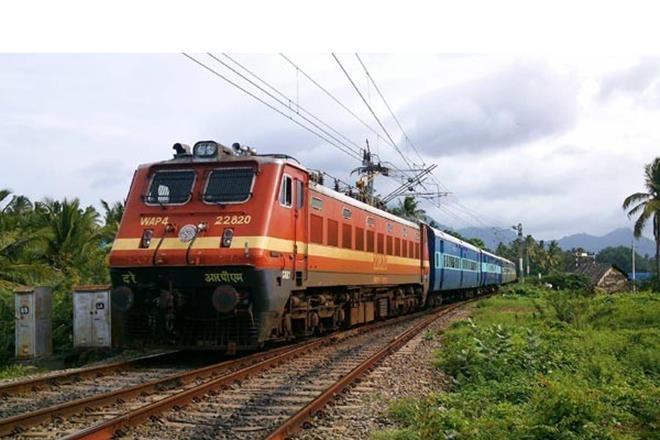
Despite the enhanced fare in the premier trains, passengers feel that the services do not commensurate with the increased tariff. The punctuality has taken a back seat with a decreased trend in occupancy rate post implementation of flexi-fare scheme, according to the report of the Comptroller and Auditor General of India.
Making critical observation on railways' land management, CAG found serious lapses in the system, with poor maintenance of land records which have not yet been digitized, while there was no database for land under the control of Commercial wing of the state-run transporter. CAG also carried out a passenger survey, which showed that passengers expect better quality services commensurate with the enhanced fare.
A comparison with air fare for different advance reservation periods to 26 destinations from Delhi, including Mumbai, Kolkata, Bhubaneswar, Ranchi, Hyderabad, and Chennai, showed that air fares were cheaper than the respective train fares for the same routes/sectors.
CAG, in its latest report tabled in Parliament for the year ended March 2017, has highlighted deficiencies/irregularities noticed during its audit on the flexi-fare scheme and mismanagement in commercial utilisation of Railways’ surplus land and parking lots near the stations.
Aiming to earn more revenue, Railways had implemented the flexi-fare scheme in all Rajdhani, Duronto and Shatabdi trains in September 2016.
Post implementation of this scheme, the CAG found that there was a decrease in occupancy in all classes except the sleeper class in Duronto trains. The occupancy increased only in a few premier trains.
Even in AC 3 class, which was one of the most profitable classes, the occupancy dropped significantly after the introduction of flexi-fare, and the vacant berths increased from 0.66 percent in pre-flexi period to 4.46 per cent in post-flexi period. In terms of absolute numbers, the Premier trains carried 2,40,79,899 passengers during post flexi period as compared to 2,47,36,469 passengers during pre-flexi period.
Though the passenger earnings have been Rs 552 crore from the Premier trains post flexi-fare system during September 9, 2016 to July 31, 2017, there was de-growth of 2.65 per cent in number of passengers despite the availability of higher number of berths/seats. This resulted in sub-optimal utilisation of national assets. CAG has advocated the need for review and fine tuning in the scope of the scheme so that not only more revenue is earned but the number of passengers also increases, thus further enhancing revenue.
The occupancy of Mail/Express Trains in the routes where Premier trains run was found to be much more than the Premier trains during the two months test checked by Audit (October 2016 and February 2017). This indicated that instead of paying a higher fare, passengers preferred to travel by Mail/Express trains over the Rajdhani/Duronto/Shatabdi trains despite a higher travel time for Mail/Express trains, the national auditor observed.
Railway Board introduced a few measures, such as reducing the Tatkal quota from 30 per cent to 10 per cent, discounted fare in AC Chair Car of two Shatabdi trains, and 10 per cent rebate in the last fare on the vacant berths/seats after preparation of first chart during December 2016. These measures improved the occupancy of the Premier trains to some extent. This shows that rail passengers did not perceive value for their money in flexi-fare system in Premier trains, CAG noted.
To ascertain the opinion of travelling pasengers on flexi-fare system, CAG administered a survey questionnaire to 806 passengers travelling in 16 Shatabdi trains and 11 Rajdhani trains during April-May 2017. To a question on whether Indian Railways have provided any improvement in the services rendered commensurate with enhanced fare, 495 passengers replied in negative. 324 passengers stated that food served in trains required improvement and 280 passengers indicated that cleanliness of toilets required improvement.
Other significant issues identified by passengers for improvement included prevention of unauthorised vendors, cleanliness at stations and waiting areas, more options/variety in food served, behaviour of pantry car staff, provision of television, mobile/laptop charging points, cleaning of windows and curtains.
On the management of commercial plots and parking spaces near stations, CAG found gaping holes in the system and observed that there was no land management cell for commercial plots managed by Commercial Department at any level. "The existing land management cell under the Engineering Department was not dealing with or documenting records of commercial plots. Land records were poorly maintained and not digitized. There was no database for land under the control of Commercial Department," the report stated. The Station Managers did not ensure proper maintenance of records, timely realisation of rent and timely reporting of events to the divisional office in the stations test checked by Audit. License agreements were not executed and renewed timely and information about the land available under the jurisdiction of Commercial Department available with the railways was incomplete.
Railway plots were being used for purposes other than the ones allocated initially to the plot holders. Railways had not undertaken any survey to assess the present use of the plots and take action to cancel the land allotment. Significant number (33 per cent) of plotswere occupied by persons other than the original allottee. Large numbers of plots were occupied in an unauthorised manner by persons/firms. Commercial plots were illegally transferred by original allottees to others by the way of sale, donation deed, power of attorney, etc.
Regarding parking lots, railways did not execute agreements promptly in many cases, and also did not enter into agreement in some places. The contractors were managing the parking lots in an unprofessional manner and the railways were not able to ensure that they provide service as per the agreements and recover dues from contractors.
In a number of stations, though the State police was running the pre-paid auto/taxi booths, Railway Administrations did not take suitable actions or pursue the matter with the authorities concerned for collection and sharing of parking charges for running of pre-paid booths.
Get the latest reports & analysis with people's perspective on Protests, movements & deep analytical videos, discussions of the current affairs in your Telegram app. Subscribe to NewsClick's Telegram channel & get Real-Time updates on stories, as they get published on our website.










